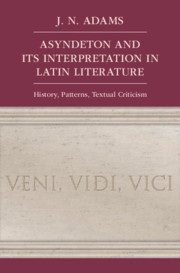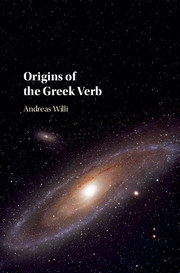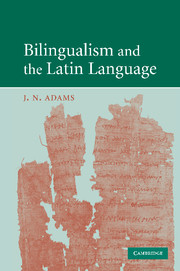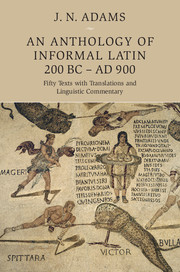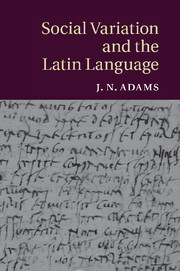Asyndeton and its Interpretation in Latin Literature
Asyndetic coordination (omission of coordinators such as 'but', 'or', 'and') is ancient in Indo-European languages. Most commentaries on Greek and Latin texts index 'asyndeton', but wide-ranging treatments of asyndeton across a variety of literary and non-literary genres are largely lacking, and comments are often impressionistic. This book provides the most comprehensive account of asyndeton in Latin ever attempted, and it also contains material from Greek and Umbrian. It analyses asyndeta in diverse genres from early Latin to the early Empire, including prayers and laws, and aims to identify types, determinants, generic variations and chronological changes. Since coordinators are easily left out or added by scribes, criteria are discussed that might be used by editors in deciding between asyndeton and coordination. External influences on Latin, such as Greek and Italic, are also considered. The book will be essential for all scholars of Latin language and literature as well as historical linguistics.
- Analyses asyndeta in a variety of Latin genres spread over half a millennium, thereby allowing comparisons to be made between different writers and genres over time
- Allows informed judgments to be made about the influence of Greek writers or genres on Roman, e.g. of Homer on Virgil, New Comedy on Plautus
- Offers a typology of Latin asyndetic pairs according to grammatical, semantic and structural features
Product details
May 2021Adobe eBook Reader
9781108950251
0 pages
This ISBN is for an eBook version which is distributed on our behalf by a third party.
Table of Contents
- Part I. Introduction:
- 1. Asyndetic and syndetic coordination: definitions and types
- 2. 'Asyndeta' that may not be asyndeta: roles of adjectives
- appositional compounds
- and 'asyndetic hendiadys'
- 3. Asyndeton versus coordination, an introduction
- 4. Lists of two types
- 5. Supposed 'effects' of asyndeton
- Part II. 'Grammatical' Types:
- 6. Asyndetic pairs (mainly of adjectives) of which at least one member is a term with a negative prefix
- 7. Simple verb + compound in asyndeton
- 8. Juxtaposition of active and passive forms of the same verb
- 9. Asyndetic pairs of verbs of different tense or mood
- 10. Pairs of imperatives
- 11. Masculine-feminine pairs
- 12. Recapitulation: 'Grammatical' types and their distribution
- Part III. Semantic Types:
- 13. Pairs of opposites
- 14. Pairs denoting family members
- 15. 'Semantic' types: some conclusions
- Part IV. Structures:
- 16. Rule of ascending length (?)
- 17. Correlative distribution
- 18. End-of-list coordination and 'weak' asyndeton bimembre
- 19. Accumulations of asyndeta: a few patterns
- 20. Discontinuous asyndeton and conjunct hyperbaton
- 21. Asyndetic pairs dependent on a single preposition
- Part V. Genres and Texts:
- 22. Laws and prayers
- 23. Plautus
- 24. Virgil and early high-style poetry
- 25. Lucilius
- 26. Cicero
- 27. Catullus
- 28. Caesar, Bellum Ciuile: asyndeton and textual criticism
- 29. Horace
- 30. The Annalists, Sallust and Tacitus
- 31. Livy
- Part VI. Conclusions:
- 32. Asyndeton in Latin.

